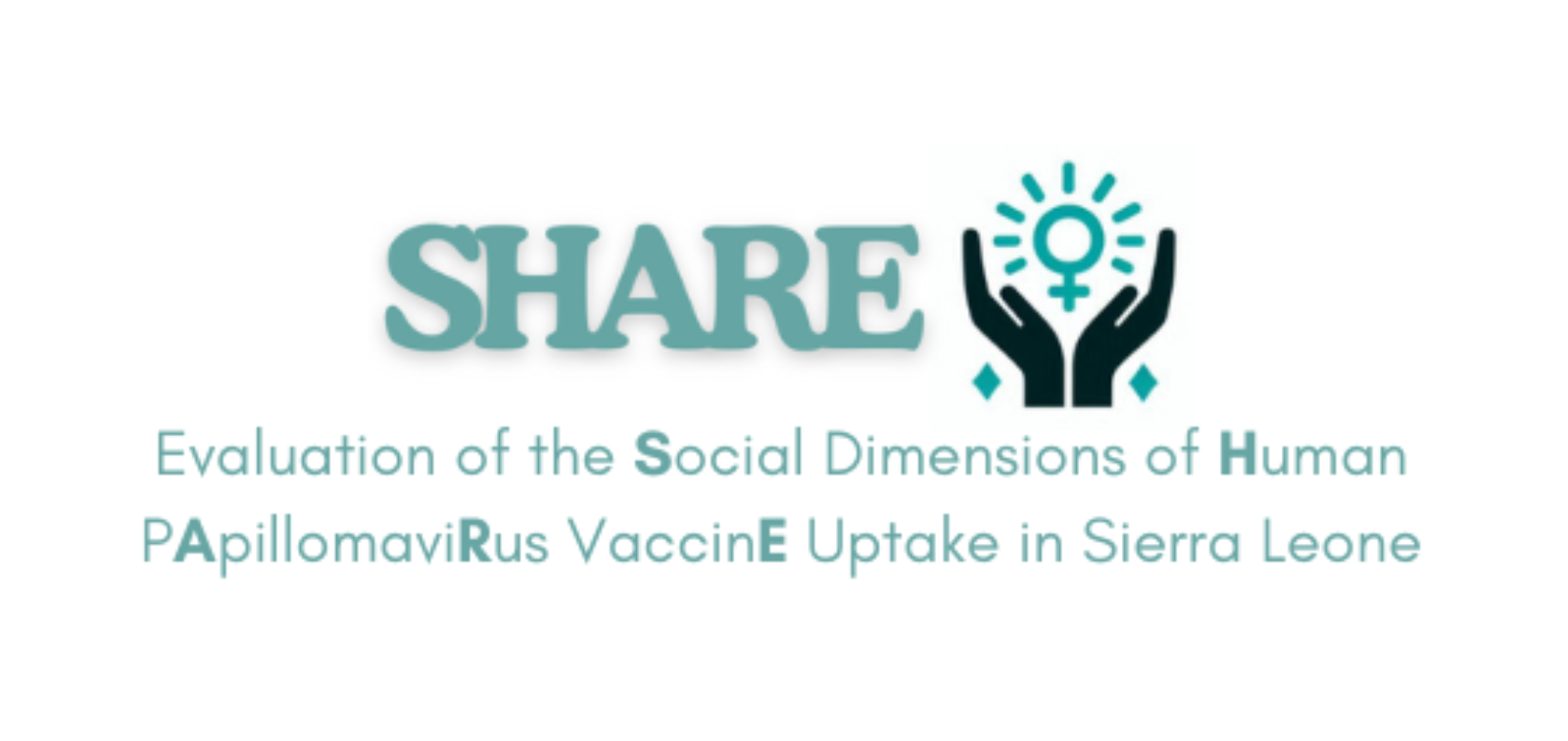SHARE
Post-Introduction Evaluation of the Social Dimensions of Human PApillomaviRus VaccinE Uptake for Improved Sustained Coverage in Sierra Leone

- Duration
- 01/08/2024 - 31/07/2025
- Coordinator
- Cristina Enguita-Fernàndez
- Funded by
- Internal Funding
Human Papillomavirus (HPV) is the most prevalent viral infection affecting the reproductive tract and is a well-known cause of cervical cancer, as well as other anogenital and head and neck cancers.
In 2020, HPV-related cervical cancer led to approximately 342,000 deaths and 604,000 new cases worldwide, with 90% of these cases occurring in low-and-middle-income countries (LMICs). Vaccinating adolescent girls against HPV is the most effective method to reduce cervical cancer rates, potentially decreasing incidence by 87%. Despite global initiatives to accelerate the elimination of cervical cancer, global HPV vaccination coverage rates among 15-year-old girls remain very low (17%).
High-income countries have largely adopted HPV vaccination programs, whereas many low-income countries have not, despite their greater need due to higher HPV infection and cervical cancer rates. Under GAVI’s HPV revitalisation program, recent efforts to introduce HPV vaccines in LMIC have been made, but sustaining high coverage rates poses challenges. Delivery-related factors (e.g., cost, supply) and uptake-related factors (e.g., vaccine hesitancy, low awareness, etc) have been suggested to contribute to low vaccination rates. However, these factors are context-specific and, thus it is important to understand which of those are more relevant in each context to ensure high coverage rates.
In Sierra Leone, the HPV vaccination program, introduced nationwide in October 2022 with Gavi's support, initially achieved impressive coverage rates, surpassing 90% in its early stages. However, recent data reveals a troubling decline in vaccination rates: first-dose coverage plummeted from 86% to 39%, and final-dose coverage fell dramatically from 93% to just 2%. This decline highlights the need for a thorough evaluation to understand the underlying factors affecting vaccine uptake in Sierra Leone.
To address this, the SHARE project, a mixed-methods formative research evaluation of the social and operational dimensions of HPV vaccination in selected districts of northern Sierra Leone, has been recently launched. This evaluation combines qualitative and ethnographic methods with quantitative approaches to gain a comprehensive understanding of the local context, including knowledge gaps, social attitudes, and structural barriers. By delving into the social and operational contexts, we aim to develop culturally sensitive strategies to enhance the sustainability of the national HPV program post-Gavi support, maintain effectiveness in reaching WHO targets, and address potential challenges in current delivery strategies.
Total Funding
81.666€
Our Team
Coordinación
-
 Cristina Enguita Assistant Research Professor
Cristina Enguita Assistant Research Professor
Equipo ISGlobal
-
 Cristina Raya Gambus Project Assistant
Cristina Raya Gambus Project Assistant -
 Andreu Bofill Data Manager
Andreu Bofill Data Manager -
 Clara Menéndez Research Professor, Director of the Maternal, Child and Reproductive Health Initiative and Programme
Clara Menéndez Research Professor, Director of the Maternal, Child and Reproductive Health Initiative and Programme -
-
Maya Sibley Project manager
-




